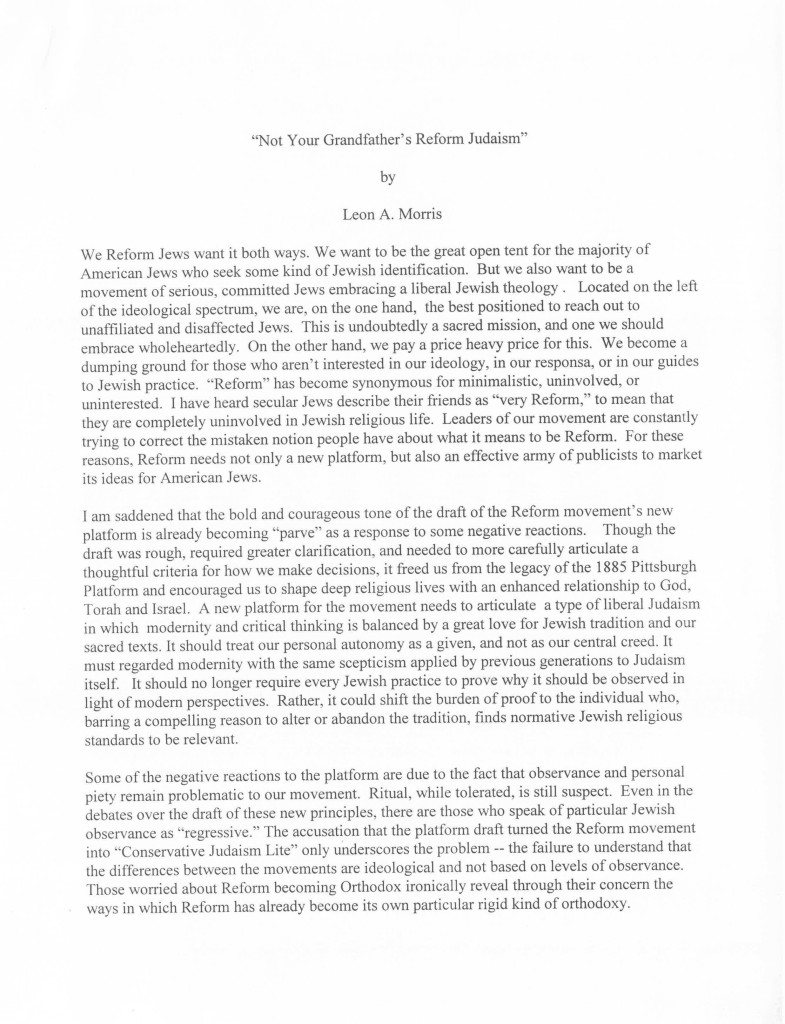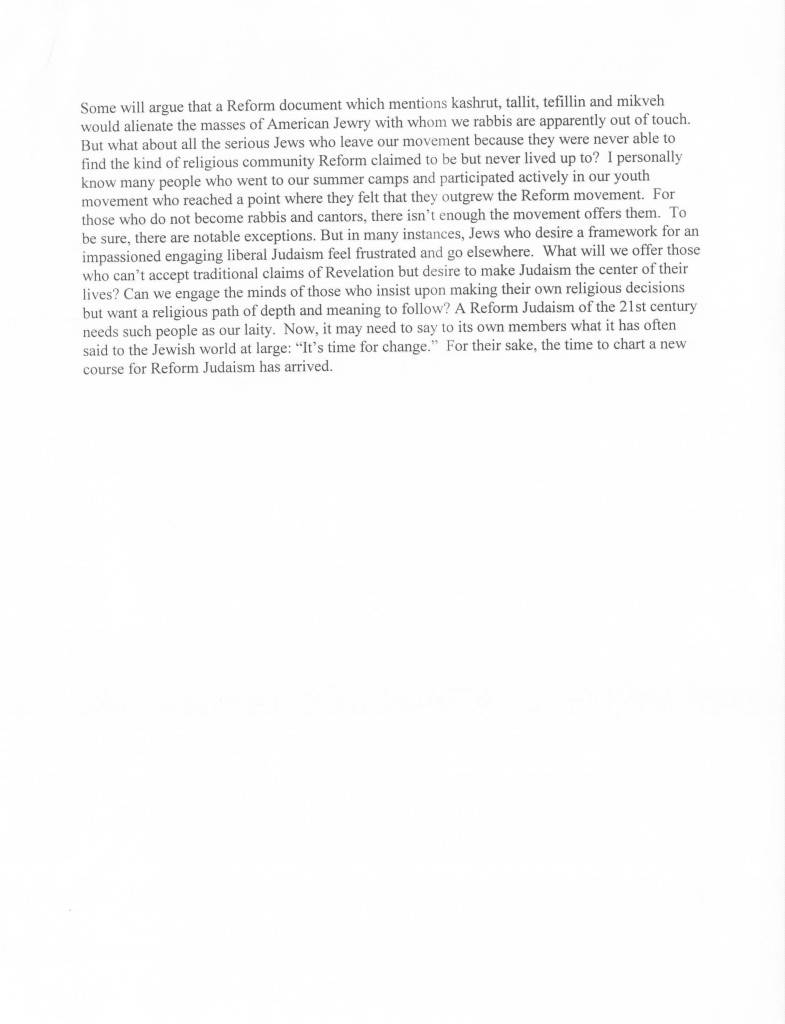Leon A. Morris
We Reform Jews want it both ways. We want to be the great open tent for the majority of American Jews who seek some kind of Jewish identification. But we also want to be a movement of serious, committed Jews embracing a liberal Jewish theology . Located on the left of the ideological spectrum, we are, on the one hand, the best positioned to reach out to unaffiliated and disaffected Jews. This is undoubtedly a sacred mission, and one we should embrace wholeheartedly. On the other hand, we pay a price heavy price for this. We become a dumping ground for those who aren’t interested in our ideology, in our responsa, or in our guides to Jewish practice. “Reform” has become synonymous for minimalistic, uninvolved, or uninterested. I have heard secular Jews describe their friends as “very Reform,” to mean that they are completely uninvolved in Jewish religious life. Leaders of our movement are constantly trying to correct the mistaken notion people have about what it means to be Reform. For these reasons, Reform needs not only a new platform, but also an effective army of publicists to market its ideas for American Jews.
I am saddened that the bold and courageous tone of the draft of the Reform movement’s new platform is already becoming “parve” as a response to some negative reactions. Though the draft was rough, required greater clarification, and needed to more carefully articulate a thoughtful criteria for how we make decisions, it freed us from the legacy of the 1885 Pittsburgh Platform and encouraged us to shape deep religious lives with an enhanced relationship to God, Torah and Israel. A new platform for the movement needs to articulate a type of liberal Judaism in which modernity and critical thinking is balanced by a great love for Jewish tradition and our sacred texts. It should treat our personal autonomy as a given, and not as our central creed. It must regarded modernity with the same scepticism applied by previous generations to Judaism itself. It should no longer require every Jewish practice to prove why it should be observed in light of modern perspectives. Rather, it could shift the burden of proof to the individual who, barring a compelling reason to alter or abandon the tradition, finds normative Jewish religious standards to be relevant.
Some of the negative reactions to the platform are due to the fact that observance and personal piety remain problematic to our movement. Ritual, while tolerated, is still suspect. Even in the debates over the draft of these new principles, there are those who speak of particular Jewish observance as “regressive.” The accusation that the platform draft turned the Reform movement into “Conservative Judaism Lite” only underscores the problem the failure to understand that the differences between the movements are ideological and not based on levels of observance. Those worried about Reform becoming Orthodox ironically reveal through their concern the ways in which Reform has already become its own particular rigid kind of orthodoxy.
Some will argue that a Reform document which mentions kashrut, tallit, tefillin and mikveh would alienate the masses of American Jewry with whom we rabbis are apparently out of touch. But what about all the serious Jews who leave our movement because they were never able to find the kind of religious community Reform claimed to be but never lived up to? I personally know many people who went to our summer camps and participated actively in our youth movement who reached a point where they felt that they outgrew the Reform movement. For those who do not become rabbis and cantors, there isn’t enough the movement offers them. To be sure, there are notable exceptions. But in many instances, Jews who desire a framework for an impassioned engaging liberal Judaism feel frustrated and go elsewhere. What will we offer those who can’t accept traditional claims of Revelation but desire to make Judaism the center of their lives? Can we engage the minds of those who insist upon making their own religious decisions but want a religious path of depth and meaning to follow? A Reform Judaism of the let century needs such people as our laity. Now, it may need to say to its own members what it has often said to the Jewish world at large: “It’s time for change.” For their sake, the time to chart a new course for Reform Judaism has arrived.

